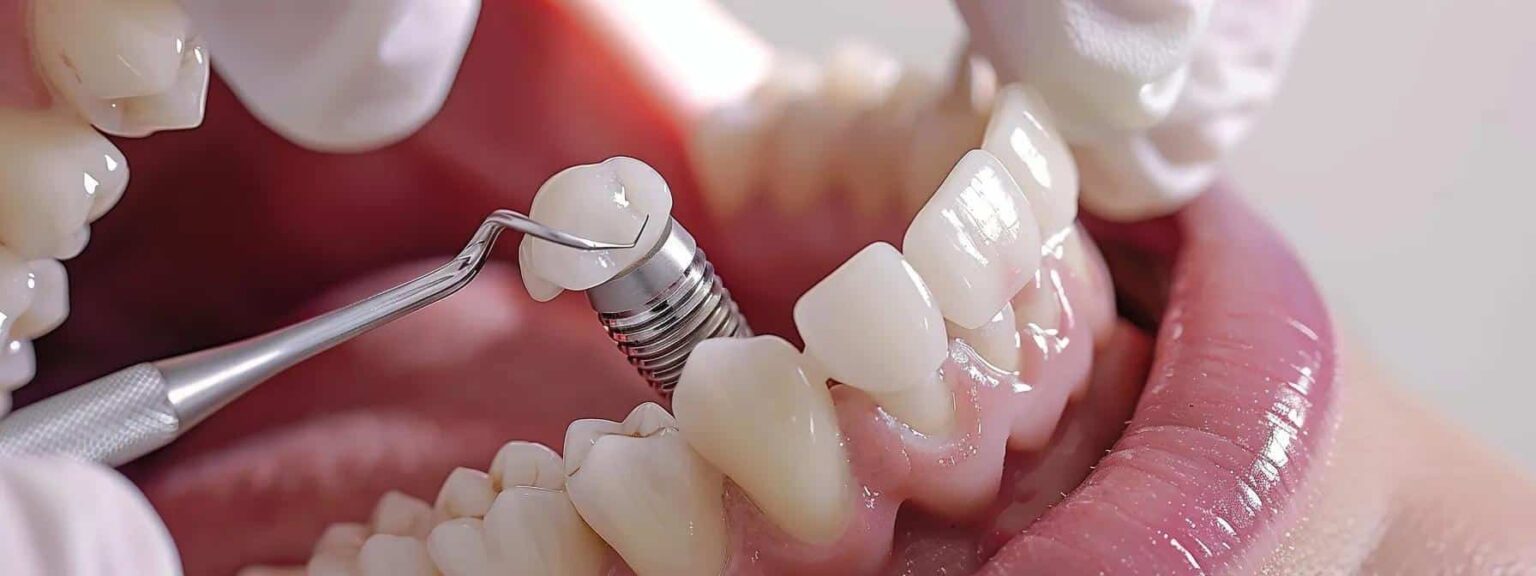Dental implants provide a durable replacement that closely mimics natural teeth in both function and appearance. Each replacement tooth is custom-made to match the color and shape of your existing teeth. Implants support chewing, speaking, and overall oral stability while helping maintain jawbone structure. Here are a few ways that this approach allows for patients to regain comfort, confidence, and everyday function in their smile:
Understanding Dental Implants
Dental implants act as durable tooth roots made of titanium or other strong metals. Each implant connects to a custom-made replacement tooth that matches the color and appearance of natural teeth. This design supports both the function and aesthetics of a patient’s smile, creating a seamless, natural look.
Over time, the titanium fuses with the jawbone, forming a stable foundation for the replacement tooth. Unlike removable dentures, implants integrate permanently with the mouth, providing lasting support, improved oral function, and long-term confidence.
Benefits of Implants
Dental implants offer several advantages over traditional tooth replacement options. They fill gaps in the smile, supporting a natural appearance. Replacing missing teeth with stable implants can also improve speech clarity and everyday communication.
Comfort increases with implants because they remain securely in place, unlike dentures that can slip or shift. Chewing becomes easier, allowing patients to enjoy a wider variety of foods. This reliable function helps maintain regular eating habits and oral health.
Self-esteem often rises when tooth gaps are addressed with implants. Their natural look and feel boost confidence in social and professional settings. Compared with crowns or bridges, implants are durable and resist chipping, cracking, or breaking under normal use.
Oral Health Advantages
Dental implants help support long-term oral health by preventing bone deterioration that occurs when tooth roots are missing. Proper implant placement can reduce the risk of gum disease by filling gaps where bacteria may accumulate, making it easier to clean. Implants also preserve adjacent healthy teeth, unlike bridges that require grinding neighboring teeth for support. By integrating independently into the jaw, implants maintain both function and structure while protecting overall dental health.
Dental Implant Process
Getting dental implants involves multiple appointments over several months. This timeline enables the implant to integrate with the jawbone, providing long-term stability. With ongoing care, implants can serve as a durable replacement for missing teeth.
The first appointment includes an oral exam and X-rays to assess the tooth roots and jawbone. The second visit places the implant into the bone socket using local anesthesia. After placement, patients follow recovery guidance and wait 6–12 weeks for the implant to settle.
During the third appointment, the abutment connector is attached, and molds of the teeth are taken for a custom crown. The dental laboratory uses these molds to create the replacement tooth. At the final visit, the permanent crown is attached to the implant, completing the process in under an hour.
Start Dental Implants Today
Missing teeth can affect appearance, comfort, and everyday function. Implants offer a long-lasting solution that supports chewing, speaking, and overall confidence. Professional evaluation helps determine which approach aligns with your smile goals. This process allows patients to restore both the look and function of their teeth over time.









